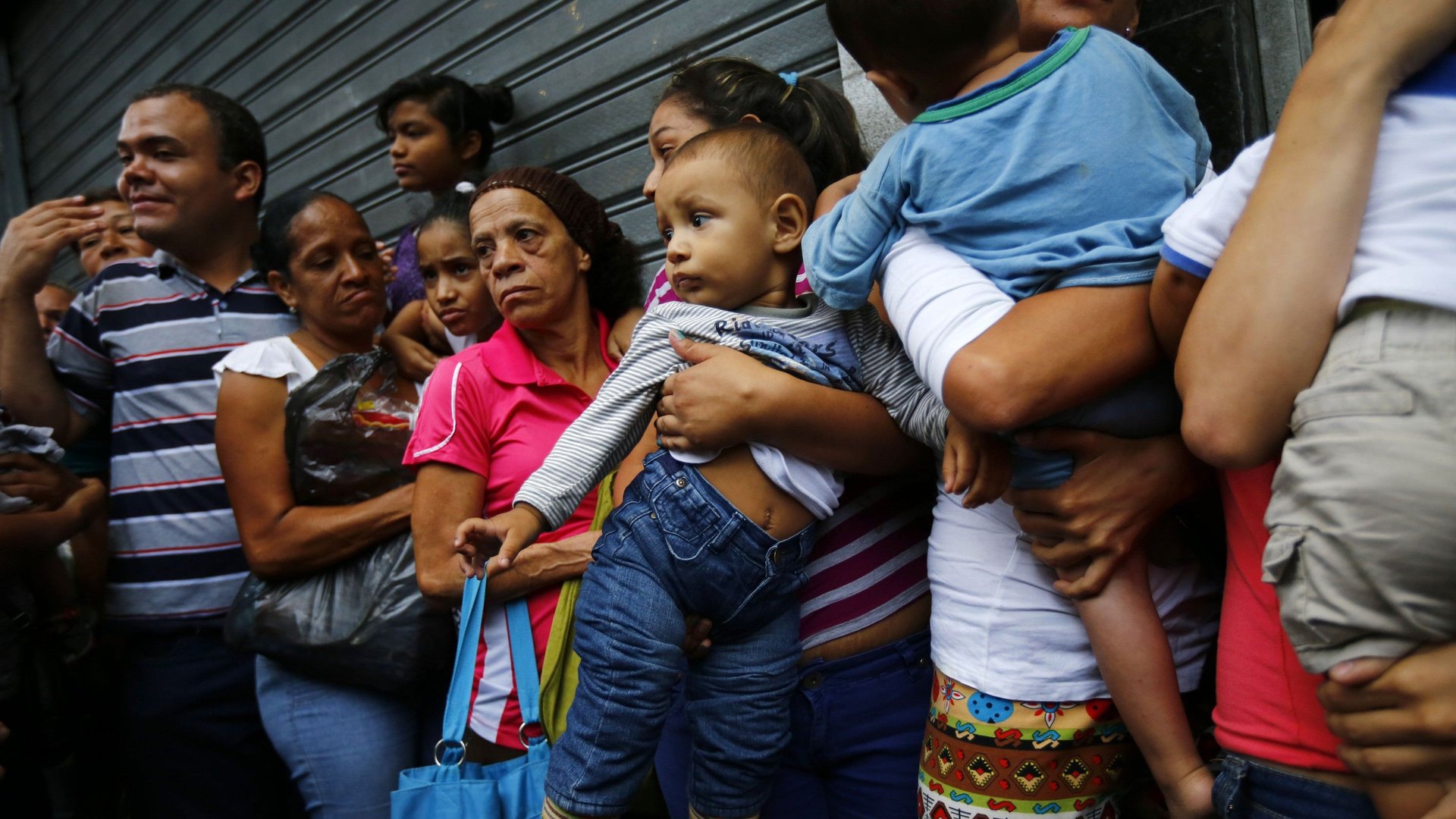Four reasons why Venezuela’s historic election upset is likely to turn out be a huge disappointment
Desperate for a turnaround in Venezuela’s dire economic situation, voters ousted the incumbent party from parliament on Dec. 6. But daily life in Venezuela is likely going to get harder, not easier—at least in the short term.


Desperate for a turnaround in Venezuela’s dire economic situation, voters ousted the incumbent party from parliament on Dec. 6. But daily life in Venezuela is likely going to get harder, not easier—at least in the short term.
For the first time since Hugo Chávez launched his Bolivarian Revolution in 1999, when he took office, the government will have to share power. At the latest count, the Democratic Unity Roundtable, an agglomeration of opposition parties known as MUD for its Spanish acronym, had won 107 of 167 seats in the National Assembly, according to Venezuela’s electoral agency.
While these parties might be able to push change through laws, don’t expect them to immediately tame the country’s soaring inflation or suddenly replenish supplies of scarce goods like toilet paper and coffee, for which people typically have to line up for hours.
There are a number of reasons to remain skeptical about Venezuela’s prospects.
1. This economic mess does not have a quick fix.
A big part of Venezuela’s woe stems from the country’s dependance on its huge oil reserves at the expense of other industries. While that wasn’t a problem when oil was trading above $100 a barrel, the economy is now suffering with prices closer to $40.
To hold on to the dwindling amount of dollars coming in, the government has been cutting imports. This has led to shortages of many consumer products—and to skyrocketing prices for them. The International Monetary Fund expects Venezuela’s inflation, already the highest in the world, to surpass 200% next year.
2. It’s unclear whether the opposition will maintain unity.
MUD, which was largely created as common front to beat the incumbent government in the elections, is made up of disparate parties, each with its own views. Some are focused on ousting the president, Nicolás Maduro, as soon as possible. Others think it’s best to negotiate with him.
MUD members will have to sort through their differences and agree on a plan if they’re to act as a block. “There’s going to be a lot of jostling for power,” says David Smilde, a Venezuela expert at the Washington Office on Latin America, a human rights advocacy group.
3. Even if MUD sticks together, it’ll only control one branch of government.
And it will likely have to go against the other two to generate any meaningful change. Instead of moving things forward, the new division of power might end up stalling the political process, sinking Venezuela into a governance crisis. Under this scenario, the chances of passing any economic reforms are “unlikely,” Eurasia Group assessed in a research note on Dec. 7.
4. Policy is hard to implement.
Even if incumbents and opposition work together, the reforms needed to jumpstart the Venezuelan economy, including raising gasoline prices and lifting currency controls, will be hard to carry out. “These are very unpopular measures,” Pedro Afonso del Pino, a constitutional law professor at Venezuela’s Central University and an independent political analyst, told Quartz. “Neither Maduro’s government nor an opposition government would withstand them now.”
So for Venezuelans tired of standing in line, stay strong. There’s probably a lot more waiting in store.